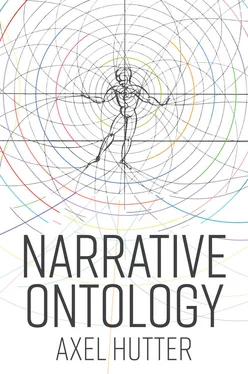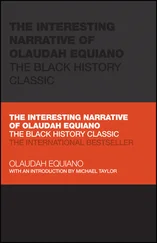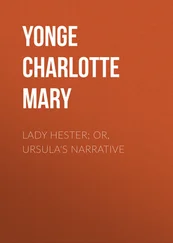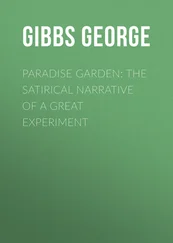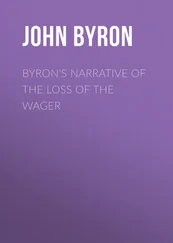1 ...7 8 9 11 12 13 ...22 Nietzsche opposes this illusion with his own critique of reason as a critique of language that articulates itself as a critical destruction of an ontology of meaningless and speechless being. That which we grasp as the ‘naked’ objectivity of things, preceding the subject and its language and independent of both, turns out to be a product of the subject and its faculty of speech, indeed a product of the mode of forgetting – for the human being, according to Nietzsche, ‘forgets that the original perceptual metaphors are metaphors and takes them to be the things themselves’ (86).
The origin of being in meaning, the rootedness of the fiction of a firm objectivity in the dynamic of the happening of language, is ordinarily forgotten and suppressed by human beings because they seek to evade the unrest of self-knowledge, the desperate cluelessness one faces in view of one’s own life story: ‘only in the invincible faith that this sun, this window, this table is a truth in itself, in short, only by forgetting that he himself is an artistically creating subject, does man live with any repose, security, and consistency. If but for an instant he could escape from the prison walls of this faith, his “self-consciousness” would be immediately destroyed’ (86).
Nietzsche’s ‘revolution of the way of thinking’ consists, then, in the reversal of the questionable character of meaning and being. He no longer asks how meaning (as exception) comes into being (the rule), but, on the contrary, how the dead rigidity of being comes into the primordial liveliness of meaning. His answer is that being is the product of a forgetting, of a self-forgetting of the subject. As soon as the subject forgets itself in its original ability to understand and create language, this subject is faced with the foreign object in the fictional context of a meaningless reality. For this reason, Nietzsche places the ‘self-consciousness’ of such a self-forgotten human being in quotation marks, since this subject no longer understands itself as subject, but rather as object among objects – that is, it precisely does not understand itself.
In order to awaken this self-forgotten non-understanding from its comfortable sleep, Nietzsche, following Kant and Schopenhauer, invents that ‘fable’ of the meaninglessness of being, which he places at the beginning of his reflections. It is supposed to make clear the existential and intellectual task, as understanding self and meaning, placed before every human being in self-knowledge – that is, the task of remembering oneself as the living subject of language and of understanding and thus of breaking the hegemony of a dead ontology of meaningless being. The truth in the understanding of meaning and the possibility of human self-knowledge can be rescued only by opposing the hegemony of an ontology of meaninglessness – and not by acknowledging this hegemony, openly or secretly.
Such a genealogy of meaningless being with a critical intent lays open the ground that accounts for why humans forget themselves as subjects: a pusillanimous willingness to renounce one’s own freedom for the sake of greater security. Meaningless being may be dead and ossified, but in its dead rigidity nonetheless offers timid humans a solid footing. Nietzsche sets against it the distinct freedom of a linguistic thinking that bestows to meaning its fitting primacy over ‘rigid’ being: ‘We have left the land and have embarked. We have burned our bridges behind us – indeed, we have gone farther and destroyed the land behind us’ (1974, §124, 180).
Nietzsche opposes such an understanding of the world and the self that is oriented to the ideal of ‘statement’ – that is, the idea of a ‘fixed’ knowledge of objects, thereby forgetting the adventure of self-knowledge. He opposes at the same time, however, a meta-physics that rigidifies what is intelligible to a ‘higher’ objectivity. Against both forms of a fixed – and, for this reason, meaningless – being, he emphasizes the radical temporality of a linguistic – and thus meaningful – being. He thus accepts, of course, the risk of misunderstanding: that what he articulates metaphorically and in ever new approaches is merely an illusion without binding force, a subjective projection that slips away powerlessly from the ‘hard’ facts of reality.
This is why Kant and Schopenhauer emphasize by contrast the objective being of what is intelligible as the ‘thing in itself’ – out of suspicion that that which is intelligible, to which no ‘object that experience can give’ could ever be ‘congruent’, might be misunderstood as a ‘figment of the brain’, that is, as a beingless illusion (Kant 1998, 395–6). In this way, they avoid the misunderstanding that Nietzsche faces, but only to expose themselves to the other misunderstanding that Nietzsche seeks to avoid: the misunderstanding that the transcendental distinction between appearance and the thing in itself results in a two-world doctrine that withdraws from the world.
The project pursued here, of a narrative ontology, attempts to navigate between the dangers of both misunderstandings. As narrative ontology , it takes up Kant’s and Schopenhauer’s project of a critical transcendental ontology, protecting itself at the same time, however, from the seductions of the expression ‘thing in itself’ by choosing the non-objective, temporally articulated, historical dynamic of the narrative form as its systematic leitmotif. As narrative ontology, it connects to Nietzsche’s transformation of the critique of reason into the critique of language, while protecting itself, however, from the seductions of elegant aphorisms by emphasizing the strict logic unique to the narrative unity of meaning, selecting it as the sober, universally accessible reference point for its line of thought. Kant’s Copernican turn and his doctrine of the primacy of practical reason is in this way taken up, and at the same time thought anew as the primacy of meaning before being .
The present enquiry takes up and transforms the Socratic aim of philosophy, the striving for self-knowledge, and defends it against misunderstandings that amount to a forgetting of its original impetus. This enquiry looks to make a contribution to a critical ontology of meaning following Kant, Schopenhauer, Nietzsche and Wittgenstein. For this reason, it chooses art – specifically, the art of language – as an ally to help to remind philosophy of its central question and task.
The initially exposed dualism of being and meaning is a threat also to the unique truth of art. According to the common understanding of reality, art has only to do with semblance, the beautiful appearance of meaning, which nonetheless is regretfully only appearance and not being. Thus, the artist works on beautiful illusions, and art prepares at best a nice hiatus from the hopeless despair of existence so that one may forget for a moment one’s factually meaningless existence. But, strictly speaking, this is no more than an impotent compensation – ultimately, a withdrawal from the world.
The meaning of art constitutes, then, its own realm of beautiful ‘appearance’, which may not be confused with the ‘severity’ of meaningless reality. This strict separation of meaning and being (and thus also of art and truth) is, as has already been shown, characteristic of the essence of everyday consciousness – which, for this reason, may indeed admire art, may even find in it a ‘respite’, possibly an ‘exaltation’, but it cannot really understand it under the conditions of an ontology of meaningless being.
So long as one draws a division between being as meaningless and meaning as beingless, one is at most in a position to talk about art but not about that which art itself talks about, because then art cannot be conferred its own claim to knowledge and truth. A genuine claim to knowledge and truth in art would reveal that knowledge and truth do not refer exclusively, in the mode of object knowledge, to literally ‘naked’ being, but, equally in the mode of self-knowledge, to the complex double aspect of reality – that is, to the unity of being and meaning that is differentiated in itself. If such a strict division is drawn between both dimensions of human existence, between being and meaning, as required by a consistent ontology of meaninglessness, then art (like human being) becomes an absurd exception to the rule of meaningless being, and cannot be authoritative for the understanding of reality because this understanding must orient itself to the ‘normal case’ of the meaninglessness of being.
Читать дальше
